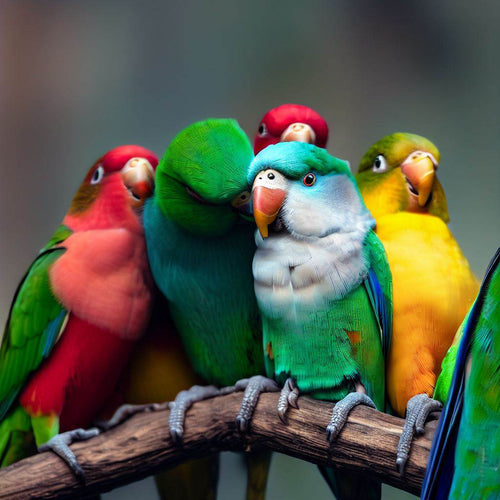Socializing A Parakeet
The Parakeets, also known as Budgies, are lively and full of personality, Parakeets can deeply bond with their owner, especially when kept from a young, juvenile period. You will need to socialize with them regularly to ensure they’re stimulated and happy. The ease of care, lovable temperament and charming looks all make the Parakeets a wonderful choice for a pet- particularly if you’re a senior or a single. Their lifespan is long, 12 to 14 years. Some have been known to learn hundreds of words from their owners. With some patience, it can be fun to teach your pet parakeet to talk.
 |
 |
 |
Parakeets love broccoli, dark leafy greens, chopped carrots, sweet potatoes and other vegetables. Parakeets love whole seeds. A single budgie needs interaction with other budgies - Birds do not need any help to bathe, you just need to provide the means for them to bathe themselves. Parakeets should be not left alone for more than a weekend, or two nights. There are too many things that can go wrong. Don’t feed the Parakeets avocado. chocolate. garlic and onions, bread, fruit pits and seeds. A water cup or bowl is the best way to offer water. Parakeets are social birds by nature and make a lot of noises. Because of this, they also enjoy toys that make a lot of sound. Toys with bells attached too, are popular. It is important to get two birds of the same sex. With Parakeets, the males are generally better companions for each other, or for people. Two females in a cage are much more likely to fight than two males.
Male budgies can learn to talk quite well; female parakeets generally don't talk. When a budgie is just learning to talk, it often mimics the intonation of language, mumbling the words. Research suggests that some birds may know who their human friends are, as they are able to recognize people's faces and differentiate between human voices. Stress for a bird includes biting, screaming, vocalization, feather picking, self-mutilation, and don't yell at your bird.




